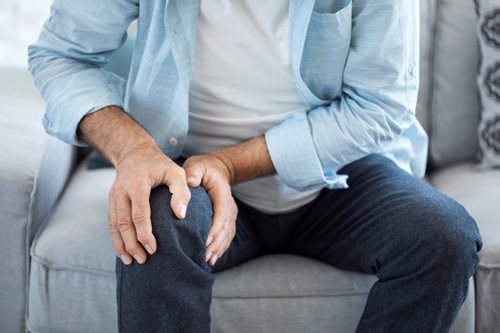NOS News•
-

Kysia Hekster
European Union correspondent in Bulboaca, Moldova
-

Kysia Hekster
European Union correspondent in Bulboaca, Moldova
Today, 47 European heads of state and government are gathered in a castle in Moldova. Prime Minister Mark Rutte is also there for a meeting of the European Political Community (EPG), not to be confused with the European Union.
Candidate EU member Ukraine and former EU member the United Kingdom are also present, as are Switzerland and Azerbaijan, for example, which do not want to join the EU. As different as they are, the countries have one thing in common: they are all 47 in Europe.
The EPG is an idea of French President Macron. He suggested the creation of the new club just after the Russian invasion of Ukraine. The security situation in Europe had suddenly changed completely: a turning point, a turning point in history, German Chancellor Scholz called it. There had to be a political response, broader and more diverse than that of the European Union alone.
Geopolitical date
That is why the countries are meeting to discuss issues such as the war in Ukraine, security and energy supply in Europe. Concrete results will probably not be forthcoming, decisions are not expected.
That is not the intention at all. All those European heads of state and government together in the picture, that is the most important message of the summit. And it is addressed to those who are missing from the picture because they were not invited: Russian President Putin and Belarusian President Lukashenko.
The club makes sense. The fact that all European leaders are together for a few hours is important enough.
“Against the background of the violence and horror of the Russian attack on Ukraine, the appearance of the European Political Community may not seem so relevant,” writes philosopher and historian Luuk van Middelaar in a study by a European think tank about the EPG. “Unlike the EU or NATO, the newcomer has made no statements, let alone financed arms or provided any practical assistance to the Ukrainians.”
And yet the club is useful, thinks Van Middelaar. After all, it is about a European war and shows Ukraine that it belongs to Europe, even without the country being a member of the European Union. The fact that all European leaders are together for a few hours is important enough. Think tank CEPA talks about geopolitical speed datingwith the EPG providing a convenient platform for European leaders to meet.
Clear signal to Moscow
At the first meeting of the EPG, it was agreed to organize the meetings alternately in a country that may or may not be a member of the European Union. After the Czech Republic, it is now Moldova’s turn. The small country, sandwiched between Ukraine and Romania, became a candidate member of the EU last year.
The government wants to join as soon as possible and considers it symbolic that Moldova is allowed to host the summit. The country is also geopolitically important: part of the country in the east, Transnistria, is under Russian control. A large minority of the inhabitants look positively at Russia. According to the government, Russia is out for destabilization and is carrying out hybrid attacks in Moldova. European leaders are meeting just a few kilometers from Transnistria, a clear signal to Moscow that Moldova is also part of the European family.
According to Maia Sandu, the country’s president, “The Summit of the European Political Community is an exceptional platform that gives small and large countries, inside and outside the European Union, an equal voice in discussions. That makes it a unique forum.”
There are also countries that have a tense relationship with each other, such as Azerbaijan and Armenia or Cyprus and Turkey. The leaders of Hungary and Serbia have pro-Russian sympathies. This makes it difficult to come to joint conclusions. And so there is only informal talk about things that everyone has an interest in: peace and security, climate, economy and energy.
In the margins of the meeting, the leaders of Azerbaijan and Armenia talk to each other in the presence of German Chancellor Scholz and French President Macron. It is an attempt by European leaders to show that they, too, have an influence on the long-standing conflict between the former Soviet republics, whose leaders met with Russian President Putin last week.
How further?
After Moldova, it will be the Spanish Grenada’s turn in October to organize the next meeting of the EPG. It will be London in 2024 and no location has yet been chosen for after that. Whether the club has a long life remains to be seen.
According to Van Middelaar, that is up to the heads of state and government. They must understand the importance of it. That will mainly depend on the threat that continues to emanate from Russia. “The risk of further destabilization in the near future is high,” thinks Van Middelaar, suggesting that the European Political Community could be here to stay.
2023-06-01 04:00:01
#European #speed #dating #Moldova #heads #state #government


